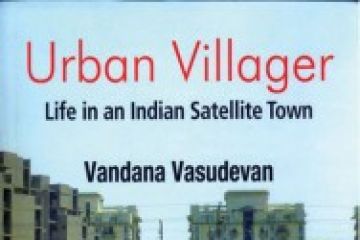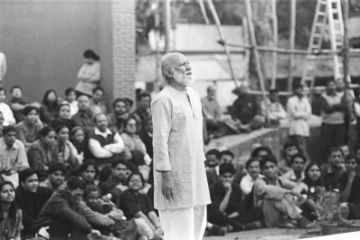
“One day, I told
Kamleshwar something that had been preying on my mind. I took out a letter from
my diary and showed it to him: the letter mentions two engines facing apart,
which is also the ending of the novel Syah aur Safed (Black
and White). I had told Rajendra Yadav Bhai that this is how I
wanted to end my novel. The result was that when Bhai published his Jab
Pret Bolte Hain (When Ghosts Speak) as Saara Aakash (The
Whole Sky), he stole the idea—by ending his novel in th





